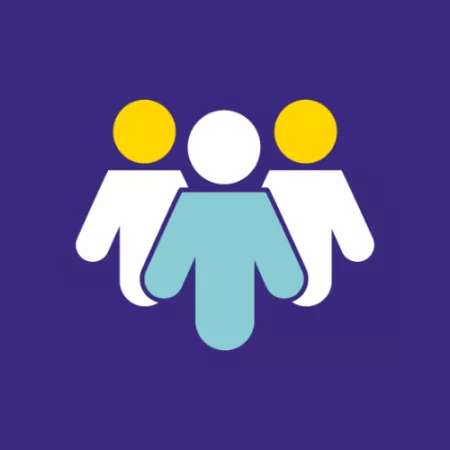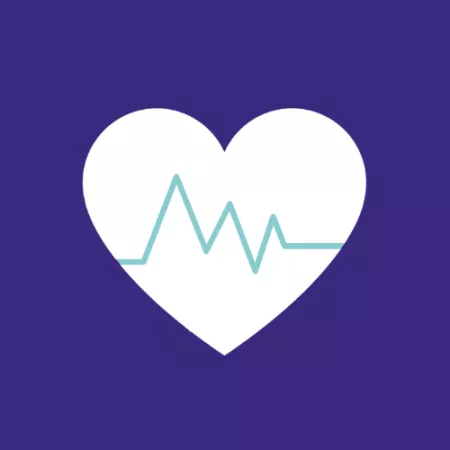While epilepsy will not always have an impact on learning and behaviour, children with epilepsy are at greater risk of being affected. Here, we cover the causes and effects.
The five main causes
Epilepsy isn’t automatically going to affect learning and behaviour. But there is a greater risk of learning and behaviour being affected in children with epilepsy than in children without epilepsy.
These difficulties are often missed because of the pressing medical needs of their epilepsy.
The five main causes of learning and behaviour issues in children with epilepsy are:
- Seizure-related factors e.g. tiredness
- Side effects of anti-seizure medications
- Having co-occurring conditions (other conditions at the same time as epilepsy)
- Psychosocial issues – a combination of psychological and social aspects
- The underlying cause of their epilepsy
Having a co-occurring condition with epilepsy can complicate the treatment and management of epilepsy and the other condition, causing further learning and behavioural difficulties.
Find out more about common co-occurring conditions.
Effects on learning and behaviour
The impact epilepsy can have on learning and behaviour doesn’t always get the attention it should.
Children with epilepsy may experience difficulties with:
- Visual, verbal and short-term memory
- Understanding sentences
- Reading
- Spelling
- Speech and language
- Mathematics and problem-solving
- Motor ability, e.g. handwriting and coordination
- Maintaining consistency in learning
- Psychosocial problems, e.g. low self-esteem, frustration, anxiety and poor motivation
- Behaviour, e.g. hyperactivity, inattention and impulsive behaviour
For children with epilepsy to do well academically and socially, it’s vital that the health and education authorities responsible for their wellbeing identify and address these difficulties early on.
You can find out more about the difficulties children with epilepsy face in school in the report Young Epilepsy’s CHESS (Children with Epilepsy in Sussex Schools) report.
Find out more about epilepsy’s impact on learning and its impact on emotions and behaviour.
Although brief, absence seizures can occur often, causing a child to miss out on parts of their lessons.
A child is likely to miss out on lessons after a tonic-clonic seizure for various reasons, including:
- Feeling extremely tired
- The risk of injury
- Side effects of emergency medication
- Having to be admitted to hospital
Some temporal lobe seizures can cause temporary problems with memory, including short-term, verbal and visual memory.
Also, seizures can interfere with brain development, causing longer-term issues with learning and behaviour.
Some children might find it difficult to learn new information, either in general or in specific areas.
With other children, their learning or behaviour may decline in specific areas.
It’s worth stressing that this won’t necessarily happen with every child.
Also, when it does, every child’s experience will be different, depending on their age when their epilepsy started, how often they have seizures, how long they last and how severe they are.
Build-up to a seizure
In the hours, or even days, before a seizure happens, the level of abnormal electrical activity in the brain gradually builds up.
This causes changes in children that you can see. The term used to describe these changes is ‘prodrome’.
You may notice your child becoming irritable, anxious or withdrawn.
Also, their ability to process information, their memory and concentration may all be affected, in turn having an effect on how they learn.
Not every child will have a noticeable prodrome, while with others it will be very obvious.
It’s important for anyone involved in the care of a child with epilepsy to be aware of their behaviour, so that they can spot any noticeable changes before a seizure.
If your child has quite an obvious and predictable prodrome, it may be possible to adapt activities before their seizure to help in their learning, improve their safety and make sure they are included in activities.
Recovery after a seizure
It’s common for children to feel extremely tired and have a headache and muscle weakness after a seizure, as their brain and body recovers.
As well as these physical symptoms, they may also feel confused and have problems with memory, processing information and concentrating.
For some children, these problems last for a few hours. For others, they last for days.
Every child will recover differently, depending on the type of seizure, how severe it was and how long it lasted.
How disrupted sleep affects learning and behaviour
Children with epilepsy often experience disturbances in electrical activity in the brain during sleep. They may or may not also have a seizure.
Disrupted sleep patterns in children can interfere with memory formation and emotional learning.
This can result in a child being tired the next day and having emotional difficulties and memory loss.
How anti-seizure medications can affect learning and behaviour
Some anti-seizure medications can also cause sleep disturbances and have side effects that can affect learning and behaviour. These include:
- Drowsiness and lethargy
- Processing information more slowly
- Poor attention
- Memory loss
- Problems with movement and coordination
- Mood changes
Not all children will experience side effects from anti-seizure medications. Side effects are more likely:
- When a new drug is first introduced
- If a child takes more than one anti-seizure medication
- If the dosage is changed
It’s important for anyone involved in the care of a child with epilepsy to be aware that their learning and behaviour may vary as they grow and their medication dosages change.
So, the support provided should also be adjusted.






